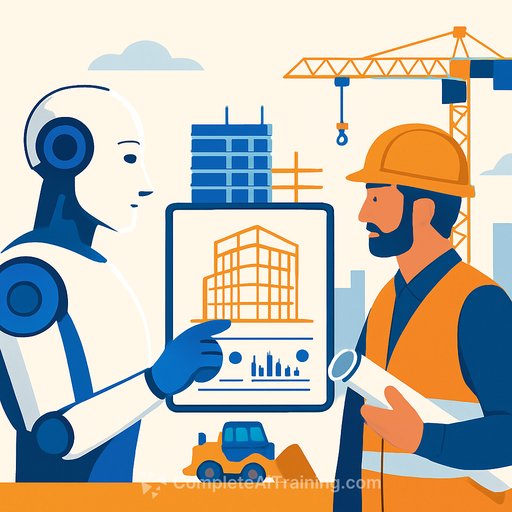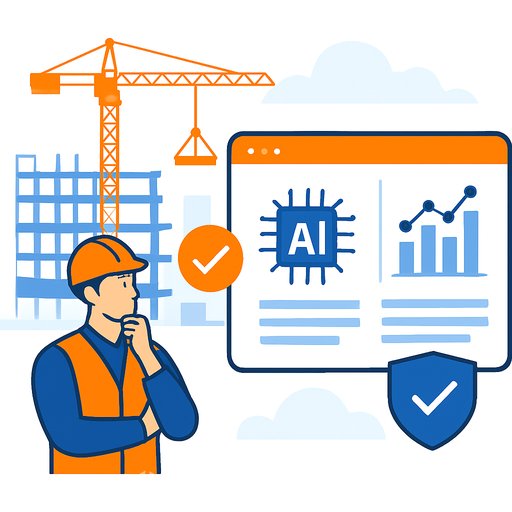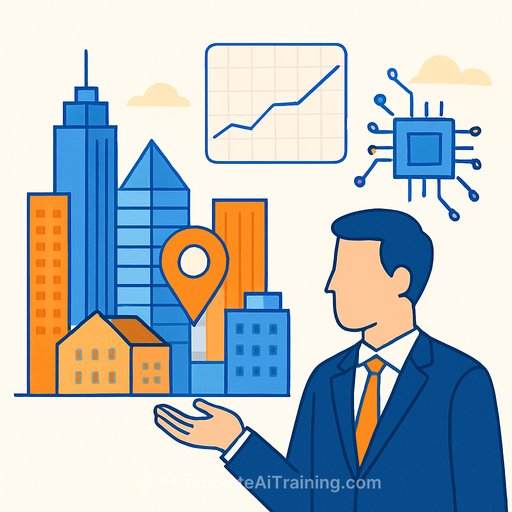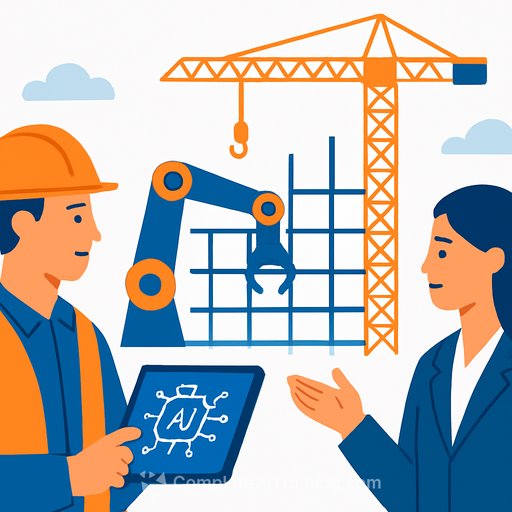AI in Construction: Insights from Klemensas Mecejus
Few explain AI with the clarity and calm conviction of Klemensas Mecejus—known simply as Klem. For him, AI isn’t a magic solution but a practical method to reduce friction in human systems and speed up sound decision-making. His focus is the construction sector, an industry not usually linked with digital finesse.
From Math and Business to Construction AI
Klem’s path into AI started with a passion for mathematics and business. The turning point was hands-on experience in an EU-funded AI project where he learned programming and machine learning directly from an expert. This practical foundation shaped his career, aimed at applying AI in areas where it can make a tangible difference.
He notes how quickly AI has become accessible, moving from a specialized field to a tool available to many.
Applying AI Across Construction Stages
Klem outlines how AI is reshaping traditional construction workflows. In planning and design, AI speeds up permit reviews, evaluates complex master plans, and simulates outcomes like temperature and shading.
During construction, AI predicts delays, manages contractor risks, and supports real-time site inspections to catch and prevent issues early. The focus is precision—not automation for its own sake. AI helps reduce errors, cut delays, and enables faster, smarter decisions, improving efficiency and project resilience.
Why the Middle East is Poised for AI in Construction
Based in the Middle East, Klem sees the region as uniquely positioned to advance AI adoption in infrastructure. With a large, innovative construction sector, strong government backing, and the ability to attract global talent, the Middle East aligns capital, ambition, and technical skill.
At AI71, the approach is clear: align AI efforts with core business priorities, especially construction and real estate. They build multidisciplinary teams combining AI expertise and construction knowledge to create integrated solutions. These systems analyze diverse data sources to support immediate, data-driven decisions, addressing technology, talent, and culture together.
Addressing the Challenge of Complexity
Integrating AI in construction isn’t easy. Many clients believe they’re ready until they face the reality of fragmented teams, systems, and data. Construction projects often involve dozens or hundreds of teams, leading to operational silos and inefficiencies.
Klem points out that unifying this disparate information into a single AI-driven decision process is a major hurdle. Technologies like computer vision, IoT, and real-time safety monitoring can be tough to implement and scale.
Still, predictive analytics offer real benefits by identifying risks early, optimizing planning, and supporting better decisions. This helps cut delays and cost overruns, keeping projects on track.
Where the Biggest Opportunities Lie
The largest untapped potential, according to Klem, is in construction monitoring. This means integrating a wide range of data—from databases and spreadsheets to PDFs, videos, drone footage, and CAD files—into one unified AI system.
Successfully connecting and analyzing these diverse inputs can surface actionable insights, addressing root causes of delays, cost issues, and risks. It’s a complex task but where AI adds genuine value.
The Future of AI in Construction
Klem envisions a future where data collection, analysis, decision-making, and action merge seamlessly into real-time systems that enhance human capabilities. He stresses that AI isn’t about replacing people but helping them move faster and make better decisions instantly.
This vision supports a construction industry that works smarter, reacts quicker, and delivers outcomes with greater confidence.
Introducing SuperHive: AI71’s New Platform
Shortly after this discussion, AI71 launched SuperHive, an AI-powered platform designed to transform the construction lifecycle—from permitting through operations. It offers real-time intelligence, compliance automation, and digital twin features to speed project delivery, reduce rework, and improve asset performance.
At the core is AiComply Studio, which automates building code validation, cutting down time and errors in permit approvals. Klem highlights the benefits across consultants, developers, and city planners.
SuperHive is ready for national-scale deployment and reflects AI71’s mission to embed intelligence throughout infrastructure delivery, reimagining how construction projects are managed.
For professionals in construction and real estate looking to deepen their AI knowledge, resources like Complete AI Training’s tailored courses can provide practical skills aligned with industry needs.
Your membership also unlocks:






